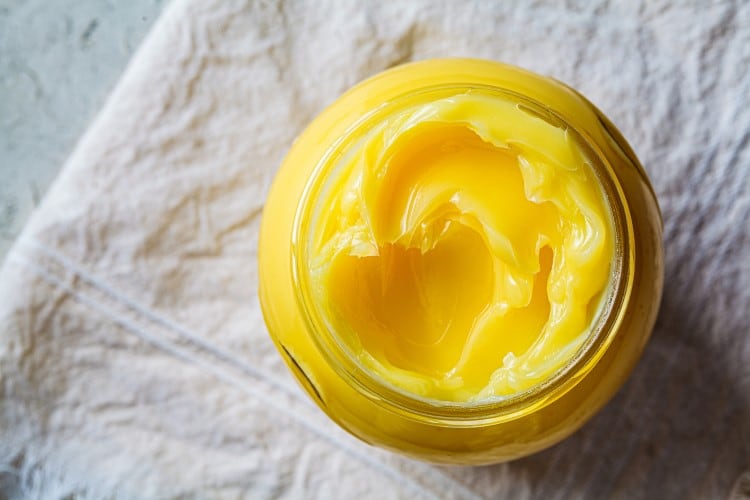According to the country’s food regulations, the terms ‘ghee’, ‘butter’ and other dairy terms cannot be used to market some vegan foods. Manufacturers of plant-based alternatives also need to get specific approval from the food authority to use a vegan food claim or place the vegan logo on pack.
In a letter to all commissioners of food safety and all regional FSSAI directors, the body reported that non-dairy products branded as ‘plant-based ghee/butter’ and ‘vegan ghee/butter’ were being sold online and in stores by some retailers, in breach of regulations.
“Such products are of non-animal origin and are usually the blend of two or more edible oils/hydrogenated fats and natural identical flavors etc.,” the regulator stated, adding that the vegan products branded with dairy terms were being sold ‘deceptively’ to the public.
Regional authorities have been urged to ‘immediately check the labels of such products being manufactured and/or sold’ under their jurisdiction, and take action against food businesses that have breached the rules.
‘Cheating of the highest order’
The directive was issued four days after the Indian Dairy Association (IDA) president, Dr. R. S. Sodhi, called the practice of selling plant-based dairy alternatives branded with dairy terms consumer deception ‘of [the] highest order’. Replying to a tweet that exposed how a coconut oil-based vegan product was being sold as ‘ghee’ on an e-commerce website, he commented: “This is cheating of consumer of highest order. A blend of 2-3 vegetable oils, not costing more than Rs250 [US$3] per kg, being sold at Rs 800 [US$9.80]. [FSSAI] must take action against all such fake food products.”
Following the publication of FSSAI’s directive, the IDA said it was ‘thankful’ to the body for its swift response. “It will not only help in maintaining farmer livelihoods but [also] ensure genuine food to consumers,” the association said.
But Sanjay Sethi, CEO of the Plant Based Foods Industry Association (PBFIA), has said that it's the dairy industry that is putting undue pressure on startups looking to fill the gaps in the plant-based food market. "It has never happened in the past with any nascent industry where instead of receiving guidance from the industry stalwarts, startups are subjected to cruel comments directed to crush them," Sethi told DairyReporter, adding that he believes that the regulator could collaborate with manufacturers to better prepare entrepreneurs on compliance.
'No confusion'
India is the world’s largest producer and consumer of dairy. According to Statista, in 2021 the country reared nearly three times as many milk cows as the entire European Union. A 2020 report by the Good Food Institute (GFI) and Ipsos showed that the industry had a share of around 4% of the Indian economy and the sector’s estimated worth was US$140bn.
Plant-based dairy meanwhile had a valuation of just US$21m in 2020, though it had a greater growth potential compared to traditional dairy. According to GFI/Ipsos, India's plant-based dairy market was set to expand at CAGR of 20.7% by 2024 to reach a valuation of US$63.9m.
Indian consumers are also increasingly aware of the category. According to GFI/Ipsos, Indian consumers who purchase plant-based milk do so ‘consciously’, and most have ‘no confusion on the source of origin/ingredients of plant-based milk’. The report also estimated that 90% of plant-based milk consumers are essentially flexitarians, as they would also consume dairy milk alongside plant-based alternatives. “This clearly shows the potential for plant-based dairy to grow alongside animal-derived dairy consumption and not instead of it,” the authors concluded.
But the FSSAI says that the use of so-called dairy terminology for a product that is not milk/a milk or a composite milk product is prohibited. This is based on a regulation from 2011, which, however, allows the use of some dairy terms, such as ‘butter’ for peanut butter products or ‘milk’ for coconut milk, otherwise known as ‘internationally-accepted’ terms.
"The nomenclature for plant-based food terms such as 'milk', 'ghee', and 'butter' is heavily regulated, making it difficult for startups to effectively market their products," explained Sanjay Sethi of the Plant Based Foods Industry Association. "We have been using products like coconut milk and peanut butter, but the usage of such terms is something that regulators allow."
Sethi highlighted that brands such as Epigamia and Rich's have already successfully introduced plant-based products such as yogurt and whipped cream. "These brands have not only democratized this food revolution, but have also rattled big organisations resulting in a panic reaction," he added.
Sethi concluded: "Young startups start one step at a time, then try to perfect their craft and initiate a revolution. In this case, it is a bid to fix a broken food system to make it sustainable and just."



